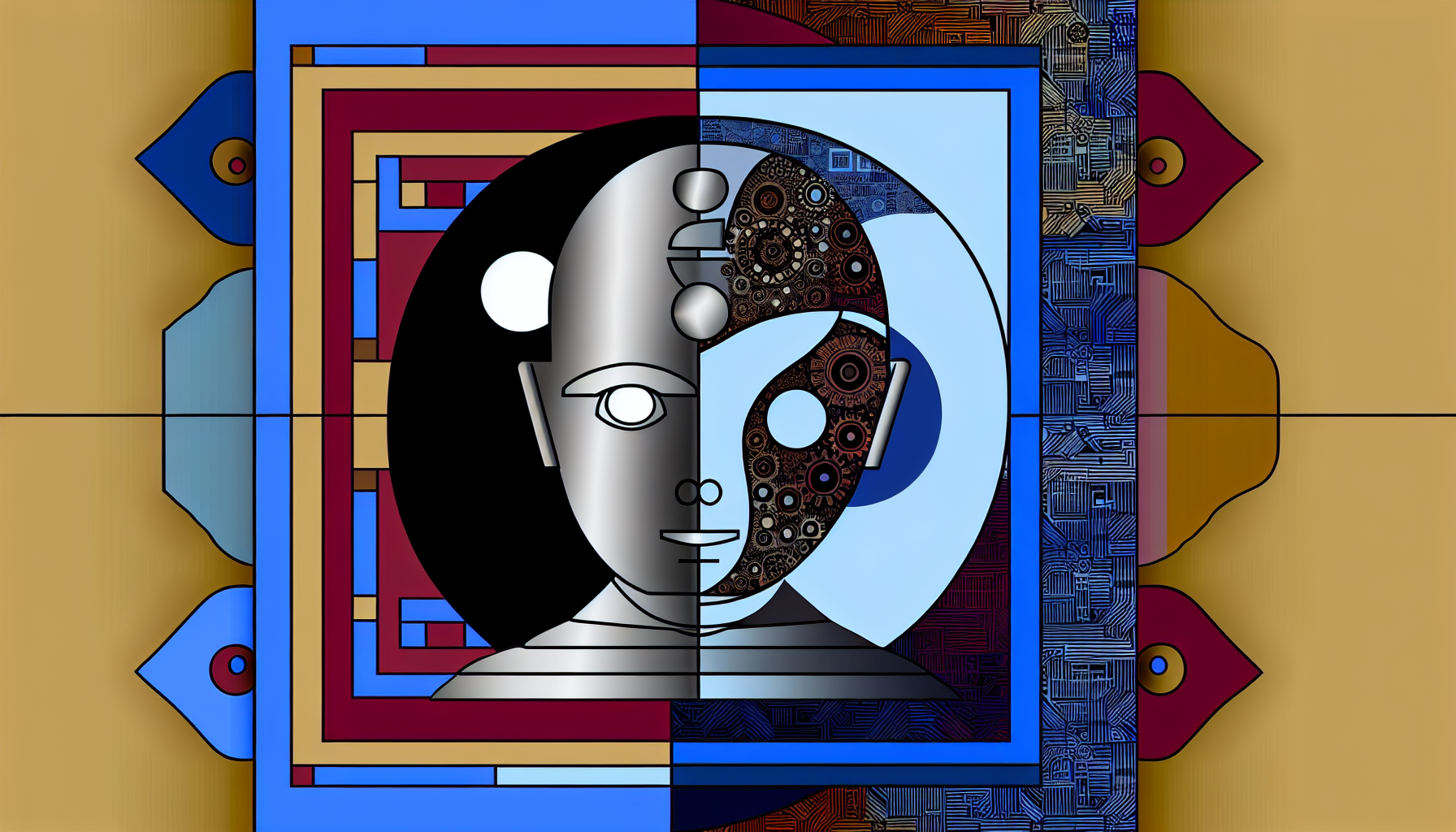In the bustling landscape of modern philosophy, few topics are as fiercely debated as the nature of consciousness. Enter artificial intelligence, a technological wunderkind that’s not only increased our computational prowess but also spurred renewed discussions about how we understand the human mind. At the heart of this debate are two opposing philosophical perspectives: dualism and materialism. But what happens when AI enters the fray, challenging these age-old views?
Dualism: The Case of Two Worlds
Dualism, famously advocated by René Descartes, posits that the mind and the body are two fundamentally different entities. Imagine a club where the soul gets exclusive membership, enjoying entry privileges to the realm of thoughts, emotions, and subjective experiences. Meanwhile, the body fumbles at the velvet rope, forever relegated to the world of physical processes and biological functions. According to dualism, the mind exists independently of the physical brain.
Yet, along comes AI, strutting into our philosophical club with an invitation that reads: “Build a machine that thinks like humans!” AI challenges dualism by demonstrating that processes we associate with the mind—like learning, problem-solving, and even simple “thinking”—can be simulated physically. If a machine can mimic cognitive activities, perhaps the chasm between mind and matter isn’t as pronounced as dualists might hope.
Materialism: A One-Way Street?
On the flip side of the philosophical coin, we have materialism, which argues that everything about consciousness can be explained in terms of physical processes in the brain. In this view, thoughts and feelings are nothing more than the byproducts of synaptic symphonies playing in our heads. To materialists, if you have the code—let’s call it the “Human OS”—then consciousness naturally follows, emerging like the pop-up in Mario Kart after you ingest a star.
AI seems to be nodding along with materialism at first. It thrives on data, algorithms, and neural networks that mimic the brain’s architecture. Yet, as we develop increasingly sophisticated AI, the limitations of materialism surface. Despite executing tasks with precision, AI lacks the ‘qualia’—the subjective, qualitative aspects of conscious experience.
AI: The Cat Among the Pigeons
Artificial intelligence raises a brow at both camps. It dances a tango with dualism, teasing with the notion that consciousness need not be as mysterious and immaterial as once thought. AI systems demonstrate that functions traditionally associated with the mind can be observed, measured, and sometimes replicated in machines. These machines don’t just do basic arithmetic—they can recognize faces, translate languages, and, humbly, beat us at chess.
Conversely, AI plays footsie with materialism, exposing its shortcomings. Yes, machines can mimic mental agility, but do they ‘know’ they are thinking? Can an AI ponder the beauty of a sunset or wallow in existential dread on a rainy Tuesday afternoon? Such musings remain stubbornly out of reach, suggesting that there may be more to consciousness than a symphony of neurons.
Understanding the Mind from a New Angle
The introduction of AI into the consciousness debate offers a lens through which to reexamine both dualism and materialism. It invites us to consider that perhaps both viewpoints hold a grain of truth—and some misconceptions.
For instance, dualism might be right in suggesting that there’s more to consciousness than purely physical processes. But perhaps this ‘more’ doesn’t require the division of mind and matter. In a playful turn, dualism might embrace the idea that the mind, while distinct in nature, may still arise from the intricate dance of the physical. The ‘soul’ could be an emergent property of a profoundly complex system—no need for ethereal realms to intervene.
For materialists, AI serves as a reminder that while physical processes may house the blueprints for cognitive function, they do not entirely define the experience of consciousness. There exists an area of curiosity outside what batteries and circuit boards can currently capture.
Re–Imagining Our Place in the World
Ultimately, AI invites us to reflect on what it means to be human. As we develop machines that mimic our mental prowess, we’re forced to reconsider not only the nature of consciousness but also our place in the universe. The quest to understand AI illuminates the mysteries of our own minds, challenging us to redefine what makes us uniquely human.
In the end, perhaps the greatest lesson AI teaches us is one of humility: a reminder that despite our technological advances, the human mind remains exquisitely complex, a kaleidoscope of thought resting atop a foundation of knowledge we’ve yet to fully uncover. Just as AI prompts us to draw closer to understanding, it also shrouds consciousness in tantalizing mystery, inviting us to keep questioning, learning, and laughing at our own bewildering brilliance.

Leave a Reply